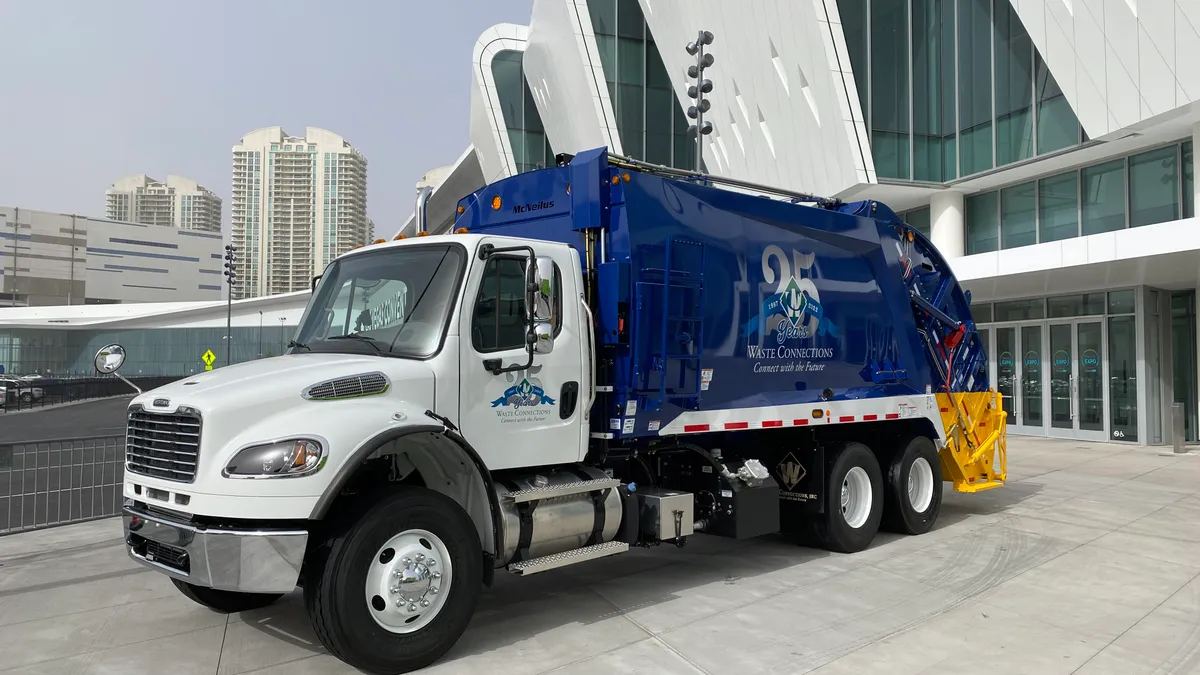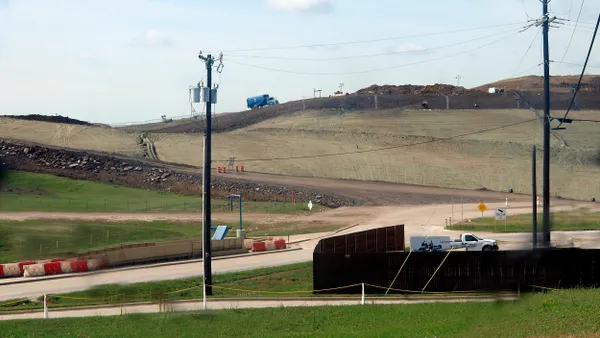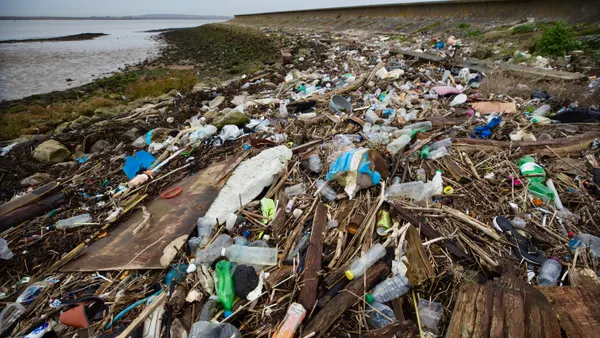Landfill siting and expansion debates played out across multiple states in recent weeks.
Here’s a look at some of the most notable developments:
Two upstate New York sites owned by Waste Connections in the spotlight
New York’s Department of Environmental Conservation renewed permits for Waste Connections’ Dunn Mine and C&D Debris Landfill in Rensselaer in late December. The permits now expire Dec. 22, 2027.
The site has drawn pushback from local residents, in part because of its proximity to a local school, and environmental advocates hoped to shut the facility down. Some local officials are working with the Sierra Club to file a lawsuit appealing the decision, as reported by the Times Union.
The DEC’s permit reduces Dunn’s allowable truck traffic from 100 roundtrips per day to 70, plus 10 trips from “zero-emission” vehicles, and reduced its operating hours. The company is required to deposit $150,000 into an account for a Disadvantaged Community Benefit Fund and conduct a study about the feasibility of constructing a vegetative barrier in one area to limit effects on the community.
The overall mine site is more than 71 acres, which is being converted to C&D disposal cells in 10 phases. The landfill’s final capped area will be 62 acres. The site’s footprint will also be slightly reduced to build an earthen berm.
Meanwhile, about 180 miles west, Waste Connections is also engaged in legal and regulatory efforts to allow for the expansion of its Seneca Meadows Landfill — the largest in the state.
Seneca, which is currently permitted to accept up to 6,000 tons per day, is attempting to expand. DEC is currently accepting comments on the company’s draft environmental impact statement and recently extended that deadline to Jan. 31, as reported by the Fingers Lakes Times.
Yet the site could be forced to shut down on Dec. 31 due to a local law passed in 2016 by the town of Seneca Falls. A Waste Connections subsidiary has been challenging this in a protracted legal process. A lower court previously ruled that the law was invalid, but the New York State Supreme Court Appellate Division ruled on Dec. 20 to reverse that decision. The company now plans to appeal that decision to the state’s highest court.
Health board again moves to block Win Waste landfill expansion in Ohio
The Seneca County Board of Health in Ohio moved to deny Win Waste Innovations an operating license for its Fostoria landfill in a unanimous vote on Dec. 12. It's the latest attempt by the board to block the landfill's continued operation and planned expansion.
The Ohio EPA approved a permit to expand the landfill in September, which would add 94 acres to the site. The Seneca County Board of Health previously voted to appeal that determination as well.
The board contends that Win Waste did not adequately protect from or repair erosion issues in the landfill's intermediate cover, in addition to other inspection violations. Win Waste denied those allegations, the Toledo Blade reported, and has previously highlighted state regulators' more than 150 inspections of the site last year.
The health board must hold another hearing before denying the 2025 operating license for the landfill. Win Waste can later appeal that decision, per the Blade.
Other landfill news
- Council members in Maui County, Hawai'i, approved a deal acquiring a future disposal site for debris stemming from the 2023 Lahaina wildfire. (Star Advertiser)
- The Beatrice Area Solid Waste Agency Board approved a $6.2 million bid from Pruss Excavating to build a new landfill south of an existing landfill site in Nebraska. (News Channel Nebraska)
- Jefferson County, Ohio, officials approved 2025 solid waste licenses for two landfills: the Apex Landfill, owned by Interstate Waste Services, and Hollow Rock Facility, a former coal combustion residuals disposal site owned by Houston-based Energy Transition and Environmental Management. (Herald-Star)
- New Hampshire state legislators approved rules related to the siting, design, construction and management of landfills over the objections of some residents who argued protections do not go far enough. (New Hampshire Bulletin)
- Stark County, Ohio, failed to sell its Exit C&D landfill, which was closed in 2002, at a forfeiture auction. (The Repository)
- Officials in Brazos County, Texas, are seeking to proactively restrict the development of future landfills in the area by limiting possible development to one county-owned site, which used to be a landfill. (KBTX)












